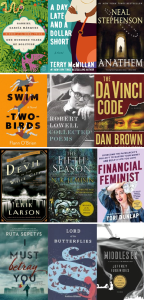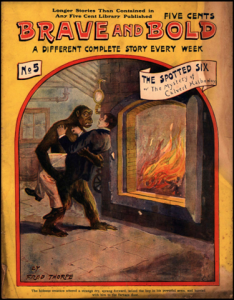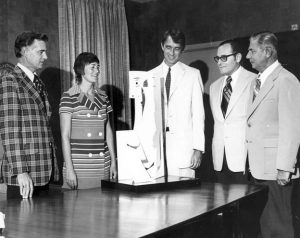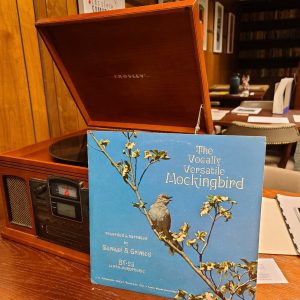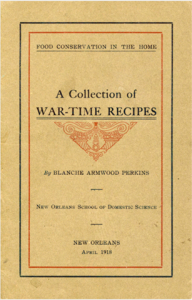Reading Time: 2 minutesIn honor of National Author’s Day, Digital Dialogs wanted to share with you some of our favorite authors. The reading list below was assembled by our very own USF Libraries’ staff and faculty. Fiction, non-fiction, poetry… mystery, comedy, science fiction, fantasy, thriller… …Continue Reading
Digital Dialogs
Latest Posts
The Spotted Six or The Mystery of Calvert Hathaway
Reading Time: 4 minutesGuest Post by Richard Schmidt, Coordinator of Library Operations and Resident Dime Novel Reviewer Warning: Spoilers Ahead I will be spoiling several of the plot twists in my review, and while I can’t recommend reading this particular dime novel, you can …Continue Reading
Picasso at USF
Reading Time: 3 minutesIf you’ve ever had a tour of Tampa Campus Special Collections, then you have probably seen the mock-up of a Picasso sculpture that never came to be. Originally planned to be erected at USF in the 1970s by the sculptor Carl Nesjar, the sculpture was meant to be over 100 feet tall. Recently, additional material from the USF Archives has been digitized. These items provide another glimpse into the monumental sculpture that, if it had been erected, would have drastically changed the feel of USF’s Tampa campus from what we know it to be today.
Open Access Week 2023: Dr. Lawrence’s Translated Texts
Reading Time: 2 minutesGuest post by Jason Boczar, Digital Scholarship and Publishing Librarian As it celebrates its fifteenth year, SPARC’s International Open Access Week aims to “raise awareness” about the “importance of community control of knowledge sharing systems.” To celebrate, the team behind USF Library’s …Continue Reading
Digital Commons Data @ USF: Our New Data Repository
Reading Time: 2 minutesEarlier this year, USF Libraries rolled out Digital Commons Data Repository @ USF (DCD), a new data platform that stores and shares datasets produced by University of South Florida researchers. Overview A data repository is a tool used to share and store …Continue Reading
Generative AI resources at the Libraries
Reading Time: < 1 minuteThe USF Libraries have been following recent developments in publicly available generative AI tools. Generative AI is a type of artificial intelligence (AI) system that generates text, images, and other media in response to user prompts. Interfaces like ChatGTP have brought advances …Continue Reading
Digital Commons Roadshow: Learn More About Library Digital Services
Reading Time: < 1 minuteUSF Libraries’ Digital Commons at USF is more than just a repository for research and archives. It is also a valuable tool, backed by a team of experts, to help you achieve your goals for tenure and promotion. In addition to free …Continue Reading
Illuminating the Archives through Art
Reading Time: 3 minutesGuest post from Erin Peel, Coordinator, Library Operations: FLENH, on connecting new archival collections from the Florida Ornithological Society with Art classes at USF.
Food Conservation in the Home and Recipes in the Archives
Reading Time: 2 minutesFood is a way to understand a place and a culture. Sharing a meal is a bonding ritual that transcends many cultural boundaries. The recipes of the past can also teach us about history, with useful tips for today’s challenges. That is the case for Blanche Armwood Perkins’ Food Conservation in the Home: A Collection of War-Time Recipes.
Gandy Digitization Project: Completing 100 Years of Tampa Photography
Reading Time: 3 minutesGeorge “Skip” Gandy IV, 1942-2020, captured images of a Tampa Bay very much in transition. In 2012, Gandy donated over 80,000 images to Special Collections as photographic negatives, slides, and prints. A small sample of 218 of these have been reformatted and …Continue Reading
